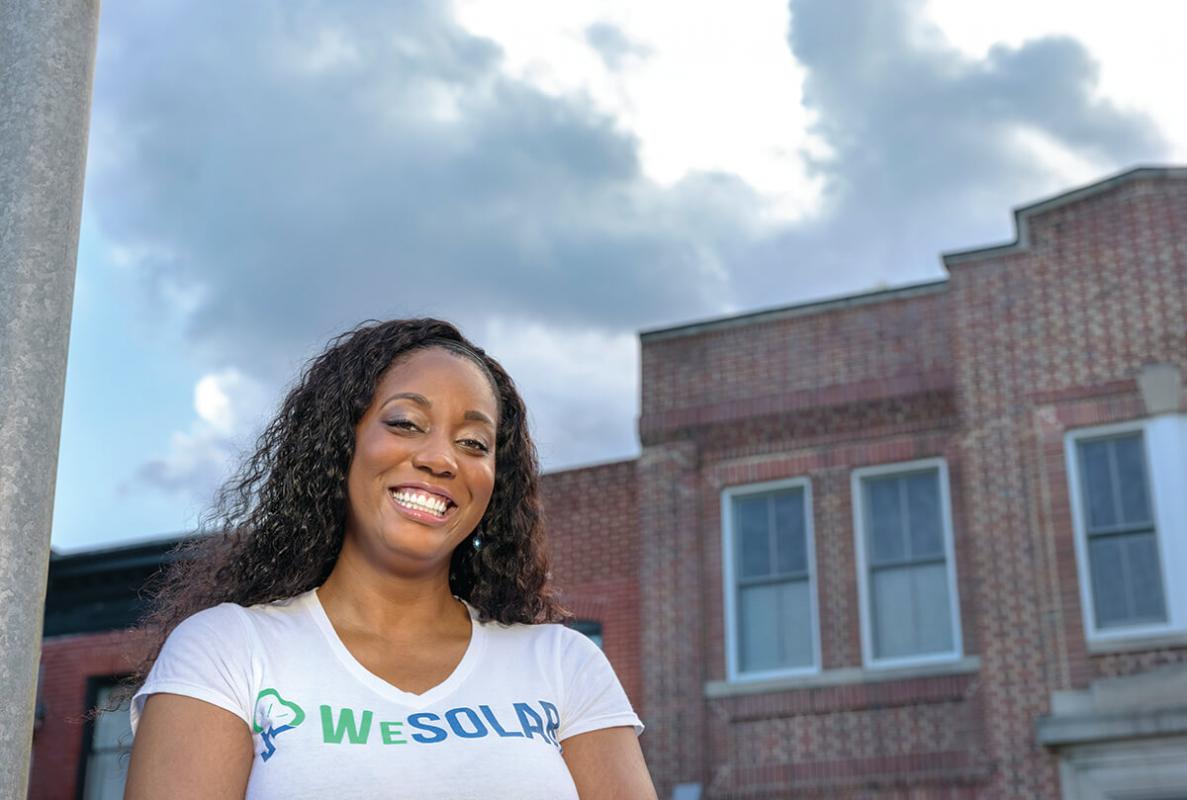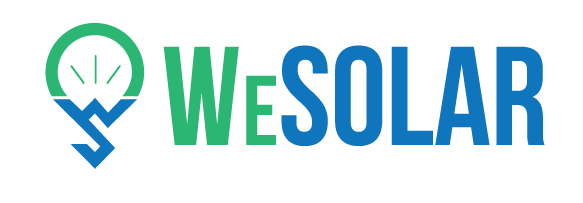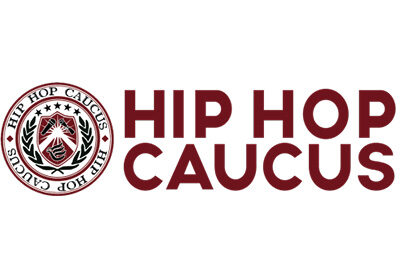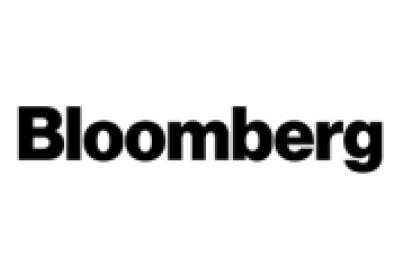Meet the Woman Bringing
Community Solar Power
to Baltimore
Kristal Hansley’s company, WeSolar, provides low-income households with affordable access to community solar power.

It was 2017 when the notion of energy conservation began to get real attention in the Maryland legislative. And Kristal Hansley—then fresh out of a career in Washington politics—had a new job at a solar-energy startup. Having come from a “family of community organizers,” the Brooklyn native enjoyed attending local hearings with industry leaders as part of her role at the regional firm. But something was off.
“At the end of the day, in those rooms, it was me and maybe one or two people that looked like me,” says Hansley, who, as a Black woman, saw that the local solar industry lacked diversity. “This was from the top down, from the developers to the financier: The only people that looked like me were the customers. I was like, ‘Wait a minute. This picture isn’t right!’”
On the consumer side, things weren’t much better. The former U.S. Senate staffer says she found that Marylanders of color were largely missing from local discussions about renewable energy, and about how community solar farms—which were new to the state at the time—could possibly help them cut back on their monthly utility expenses. In Baltimore, this rang particularly true.
“I felt like the benefits and savings of solar needed to be explored further in the city, where working-class people, middle-class people, and Black and indigenous people of color could have access to it,” Hansley says.
So, taking matters into her own hands, she created WeSolar. Launched in Charm City last year on Juneteenth, Hansley’s company aims to provide low-income households with affordable access to community solar power.
“Only 20 percent of households actually have access to traditional rooftop solar, meaning they own a home, they have good credit, and they have a roof that’s conducive to solar,” Hansley says. “The community solar model eliminates all of those steps. You don’t have to own a home or have access to a roof. You don’t have to
worry about a long-term loan payment, and you don’t have to worry about credit.”
Instead, the community solar model allows individual households, or groups of neighbors, to tap into renewable energy wherever they are by subscribing to an offsite solar project. While the individual would still be a customer with their regular utility company, by a process called virtual net metering, they would receive “solar credits” for any energy used directly from the solar power.
“There’s no hidden catch,” says Hansley.
With more than 200 people on their waitlist, and plans to expand their services across the Mid-Atlantic, Hansley says that WeSolar plans to make available 100 megawatts of solar power within the next two years, something she hopes will be possible as people begin to learn more about its benefits.
“My vision, on a macro level, is to see more solar education so that the learning curve around virtual net metering is drastically shortened and it’s no longer a myth. It’s no longer the boogeyman,” Hansley says. “That would be our goal, to have community solar, culturally, as layman knowledge.”
https://www.baltimoremagazine.com/section/gamechangers/meet-the-woman-bringing-community-solar-power-to-baltimore/




